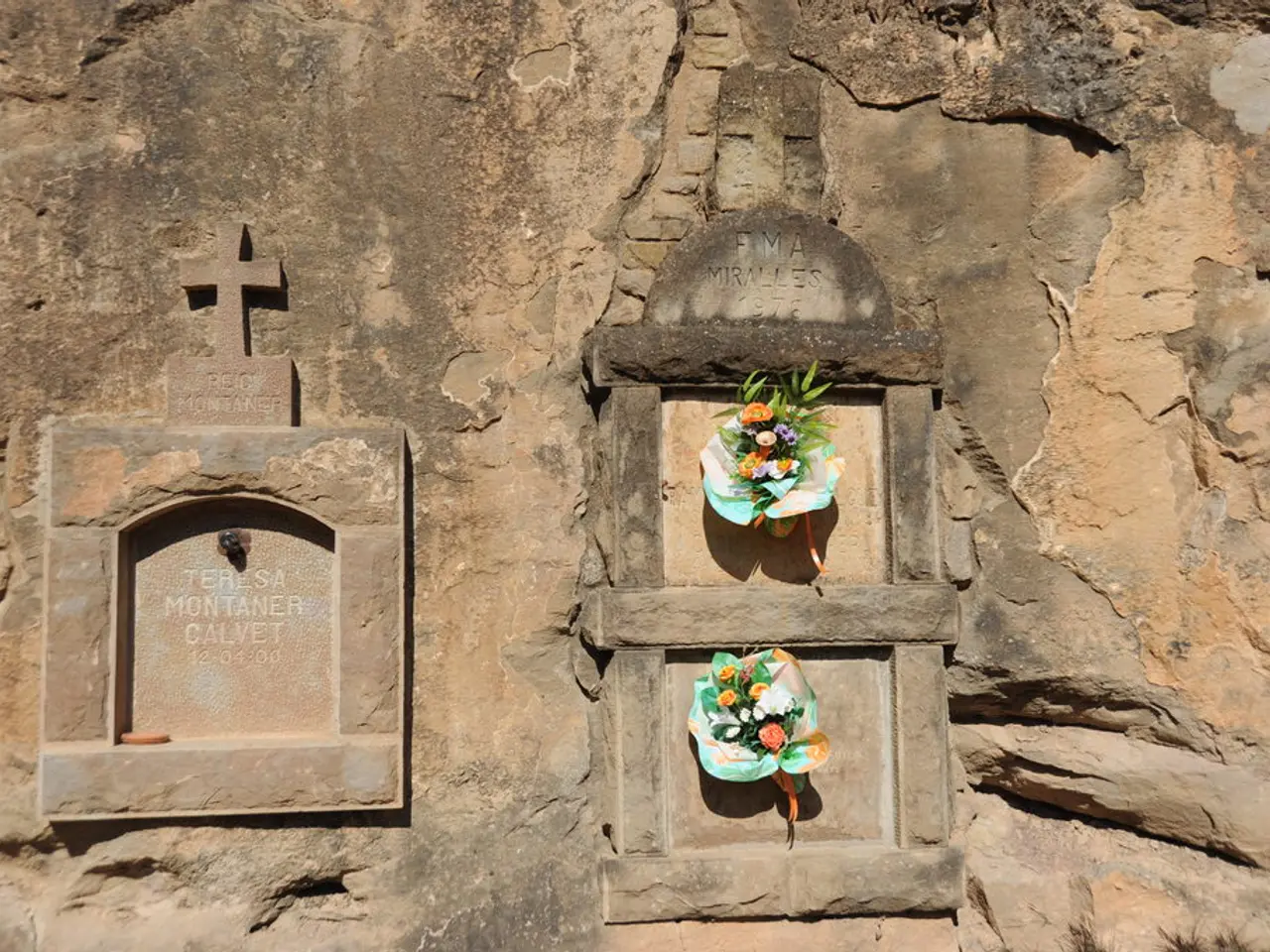In light of globalization's decline, art biennials are experiencing growth
In the contemporary art world, biennials have become significant platforms for artists to display their work and for cities to renew themselves, as Marie-Anne McQuay asserts. These cultural events, held every two years, have made a profound impact globally.
One such biennial is the Bienal de Arte Paiz of Guatemala, established in 1978 during a civil war. Despite challenging circumstances, it has never missed an edition and serves as a 'trampoline' for indigenous artists.
Across the Atlantic, Liverpool's Biennial, the UK's oldest and largest free festival of contemporary visual art, founded in 1998, continues to thrive. Notable installations include Antony Gormley's coastal Merseyside ironmen, 'Another Place', and the vibrant dazzle camouflage design on the Merseyside ferry Snowdrop, an artwork by pop artist Peter Blake.
Moving eastward, the Bukhara Biennial in Uzbekistan recently opened on September 5. This event is part of a concerted effort to bring Uzbek art to the world after three decades of post-Soviet collapse. Interestingly, 25% of the Bukhara Biennial's funding comes from private sponsorship, while the government is fully supportive.
The Bukhara Biennial is not Uzbekistan's only foray into the international art scene. Since 2015, the country has been a partner in China's Belt and Road Initiative infrastructure programme, and economic ties are also being forged with neighboring countries. Gayane Umerova, who heads both the Art and Culture Development Foundation of Uzbekistan and the administration's Department of Creative Economy and Tourism, aims to boost Uzbek artists' presence in the world market and create a biennial 'on the same level as Venice or Korea'.
Umerova also seeks geopolitical networking to rebuild links with neighbors including Korea, China, the Middle East, and Afghanistan. This strategy is echoed in the Art Encounters Biennial in Timisoara, Romania, which reactivated rusty links between central Europe and the Balkans.
Elsewhere, the International Biennial of Art and City in Bogotá, Colombia, is opening today. However, the Istanbul Biennial had to be postponed due to a furious backlash among Turkey's artistic community over the appointment of a British curator.
Finally, Sharjah in the UAE is known for hosting subcontinental artists kept apart by militarised borders, reflecting the power of art as a bridge across political and geographical divides.
Looking ahead, the 2025 Liverpool Biennial will be curated by Marie-Anne McQuay, who also heads the 2025 edition of the São Paulo Bienal, Latin America's oldest biennial, which offers free admission since 2004. As these events continue to evolve, they promise to enrich our cultural landscape and foster connections across the world.
Read also:
- Unusual Trivia About Creatures, Cosmos, Past, and the Physical Human Form
- Unspoken Power Consumers
- Jerry Greenfield, co-founder of Ben & Jerry's, expresses feelings of being torn apart and muzzled before his resignation, as reported by his fellow co-founder.
- Discovered: Ages-Old Creature Concealed Within Its Shell, Unveiled Upon Breakthrough




